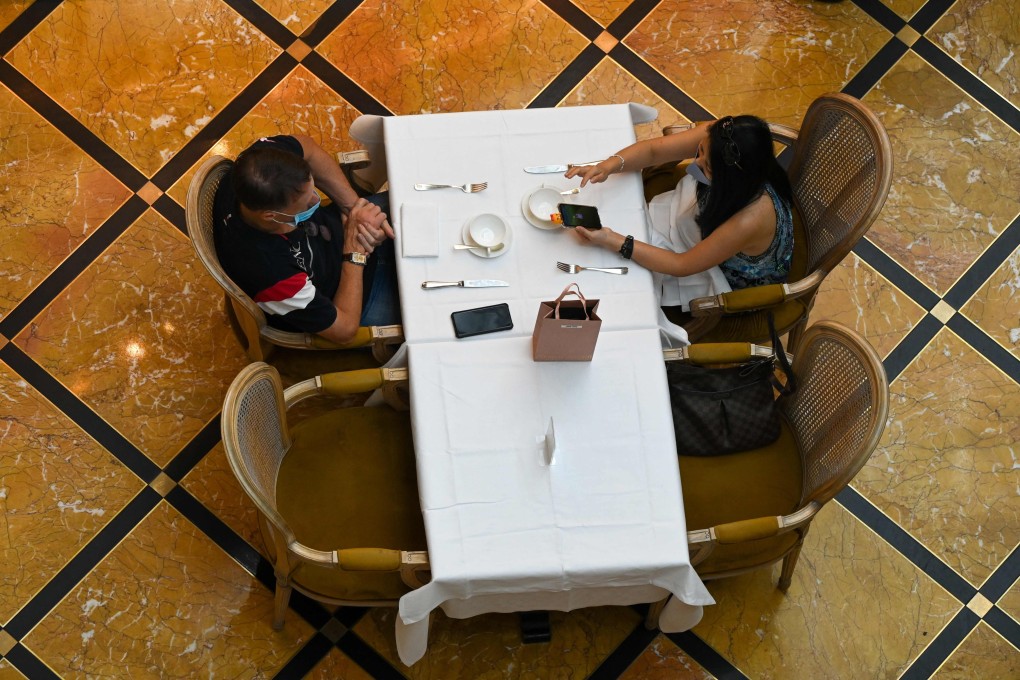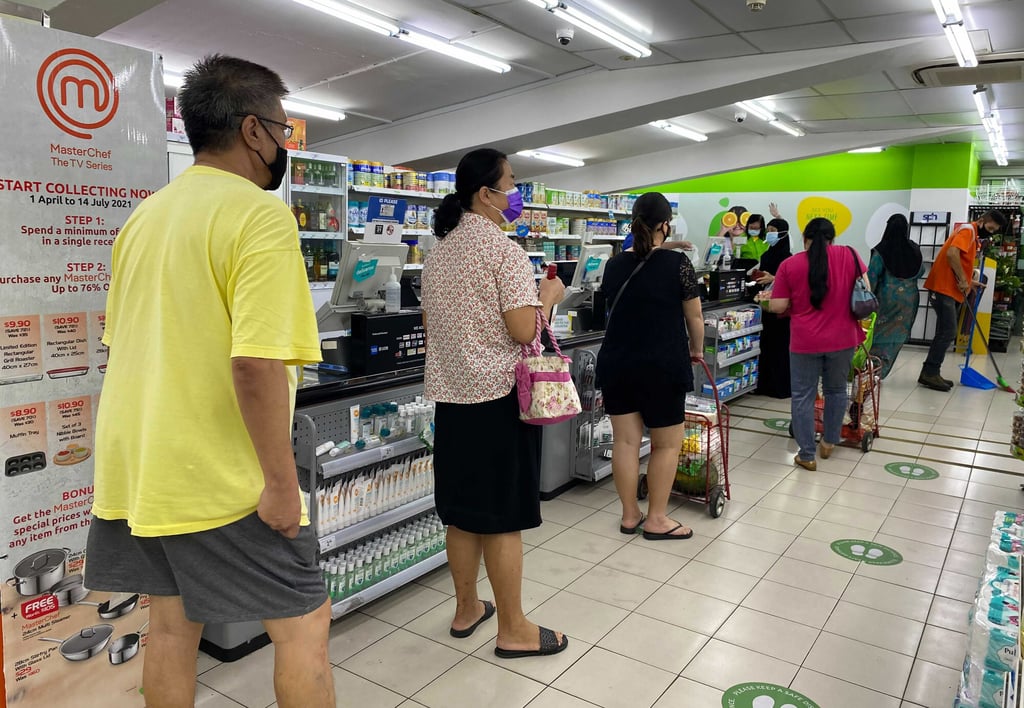Singapore to vaccinate 12-year-olds and allow groups of 5 as Covid-19 restrictions ease
- City state to widen vaccination drive from Friday and ease restrictions from Monday. Further easing, including dining in at restaurants, is expected from June 21 if infection numbers remain low
- Previous restrictions were brought in after a rise in local infections, but domestic cases have been falling, with only two reported on Wednesday

From Monday people will be allowed to gather in groups of up to five, up from a limit of two, and museums, libraries and tourist attractions will be able to operate at 50 per cent capacity, up from a limit of 25 per cent. If infection numbers remain low, from June 21 authorities will allow people to dine-in at restaurants and gym-goers will be able to exercise without masks on. However, employees will still have to work from home until further notice.
Singapore had tightened its restrictions on May 16 in response to a rise in local infections, after recording 533 local infections in May, compared to 55 in April and nine in March.
Authorities are aiming to have half of Singapore’s 5.7 million population fully vaccinated by August, and have three-quarters jabbed by October.

Gan Kim Yong, co-chair of the multi-ministry task force set up to deal with the virus, said the tightened measures had brought the Covid-19 situation in Singapore under control.